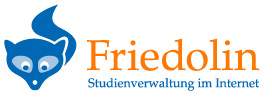| Name des Moduls | [311320] Topics in Economics | Bezeichnung des Moduls | MW26.2a |
| Studiengang | [184] - Wirtschaftswissenschaften | ECTS Punkte | 6 |
| Arbeitsaufwand für Selbststudium | 120 | Häufigkeit des Angebotes (Modulturnus) | jedes 2. Semester (ab Sommersemester) |
| Arbeitsaufwand in Präsenzstunden | 60 | Dauer des Moduls | 1 |
| Arbeitsaufwand Summe (Workload) | 180 | ||
| Modul-Verantwortliche/r | Prof. Dr. Daniel Streitz |
| Voraussetzung für die Vergabe von Leistungspunkten (Prüfungsform) | Examination via a written at-home product (”term paper”). The term paper comprises two parts: i) a conceptual part in which the students explain concepts discussed in the lectures, and ii) an empirical exercise. In the empirical exercise the students perform their own data analyses in R or STATA, explain their findings, and relate them to concepts discussed in the lecture. Both parts are handed in together with the code as one written product (the term paper) that forms the basis for the final grade. The examination is offered once a year at the end of the summer term. |
| Unterrichtssprache | English |
| Art des Moduls (Pflicht-, Wahlpflicht- oder Wahlmodul) | 684 M.Sc. Economics: Wahlpflichtmodul |
| Zusammensetzung des Moduls / Lehrformen (V, Ü, S, Praktikum, …) | Course (2h per week), Exercises (2h per week) |
| Inhalte | Topics include, but are not limited to:
|
| Lern- und Qualifikationsziele | Students
|


